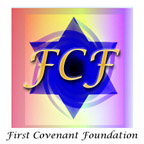|
Having trouble reading this e-mail? |
||||||||
|
For more comfortable reading, print me out as hard copy
|
||||||||
Conscious ServantLearning From Praying Prayer teaches how we’re supposed to think about God and what we ought to feel towards Him. “Blessed are You HaShem, our God, Sovereign of all and everything” may not sound very philosophical but it’s a deep sentiment reflecting a profound view of the Ultimate that’s not just good for us but true. The truth is what elevates us. Prayer works – it elevates us - by getting us focused correctly on the Ultimate.
“With an abundant love You have loved us,” “The soul You have given me is pure,” “You bless the years,” “You hear prayer,” etc., etc. - the prayers in the Siddur (the ancient Jewish prayerbook, the protocol or seder; the Order, of service) are a messaging device.
We don’t merely align ourselves with every pious, enlightened man and woman who’s ever sung these praises (and expressed their allegiance solely to HaShem) when we recite them. Rather, beyond that, we install within our own consciousness the elements – the furniture, as it were – of Abrahamic righteousness. The Siddur is there to help steep the pray-er in the most empowering, vital, reliable cosmology, philosophy, and theology ever known to man.
The thing about prayer: it doesn’t just “teach values.” By praying – by reciting solidly reliable Divine truths with dedication, daily, repeatedly - we internalize them, especially when we reflect on them, and help to make them operative.
So the Siddur, the Order of Prayer, is a key tool in the Abrahamic tool-kit, the Hebrew Revolution. It’s an amazing body of holiness that exists so we can learn from it.
Conscious Servants of the Ultimate We know God by His “Name,” or Identity – that is, “Who He is” - as He has Revealed it to the prophets and plain People of Israel over millennia. So we call Him HaShem. (This means, literally, The Name; Who He is.)
Others – their thoughts sourced from Rome, Athens, Mecca, India, Tibet, South Carolina, whatever – don’t know God as we do. This gives us a certain edge, you might say, when it comes to consciously serving Him.
“For they bow to vanity and nothingness and pray to a god that cannot deliver”
Those words from the Siddur’s Aleinu prayer usually aren’t pronounced. That’s because non-Jewish authorities hated them and forced the Jews, ‘way back in the Middle Ages, around 1400, to censor them. Maybe one day they’ll make a thorough comeback. In the meantime, there is nothing racist or triumphalist in these two thoughts:
Prayer – davening - gets better with practice. You should pray fast enough that your mind doesn’t wander, but slow enough to comprehend what you’re saying. You will, after all, pray again later, so you’ll have a chance to think more about it again.
What matters more than correctly – properly – apprehending the Ultimate? Learning what God would have us learn, to align us with the holy underlying forces of the cosmos, to make us more conscious servants… What could be more worthy?
Conscious Servants of HaShem
True knowledge of God, the ultimate reality of the universe (blessed be He, and blessed be His Name), is fantastically empowering.
Unify our hearts to love and fear His Name. - Psalms 136:7
God’s Name – His Identity, How man perceives Him – depends, obviously, on human understanding. But God is so much greater than any mortal, His thoughts and ways so holy, so endlessly, infinitely above ours, we count ourselves blessed beyond measure to get anywhere close to the full glory of His Name.
No nation is more familiar with His Name than Israel. Even so, the Jewish People’s understanding is incomplete. So even we frequently get it wrong, in some respects. Even though getting His Name wrong, by portraying Him falsely, is the last thing that anyone would want to do.
Unfortunately, we, your friends at First Covenant, did do it. We got some aspects – important aspects – of His Law wrong.
The King of the Universe is the God of Justice and there is never anything unholy or unjust in any of His Laws. But, because we - mere mortal writers - weren’t familiar with all the Torah authorities, and forgot some pertinent rules, we depicted the Seven Laws as fundamentally less just and holy than they are.
Noahide Laws are, by definition, good laws. Unjust, unfair laws disgrace the whole concept. God created man to make the world better, not worse. We sanctify the world and ourselves by making, keeping and enforcing fair laws against evil-doing. Revelation makes this very clear, incidentally: HaShem loves kindness and fairness in judgment. But we, mere writers, described His Law, wrongly, as containing an element of unfairness.
People are always defaming God, so we’re not uniquely sinful. We hope for redemption. We tried, as honestly as we could, to portray His Law correctly. God loves mistakes; mistakes are the food of evolution and progress. In fact, by the way, we think we’ve portrayed the Laws of the First Covenant, the Seven Noahide Laws, as accurately as any school ever has. We’re proud of Rainbow Covenant, and of the writings on this site. Still, we fell short.
That’s about all the breast-beating that fits comfortably into this issue. We appreciate that whatever harm we’ve done in giving out bad information is basically incalculable, but that we can’t make things that much better by going into them now, and we’ve waited this long, so … please be patient, and wait, please, for our next issue, when all (we hope) will be made clear…..
|
||||||||
